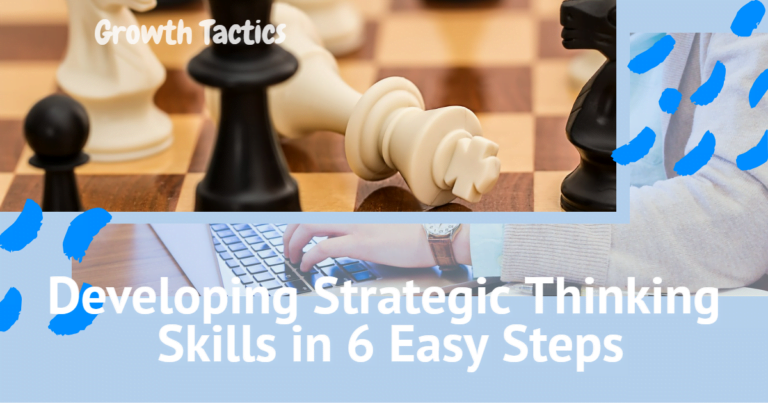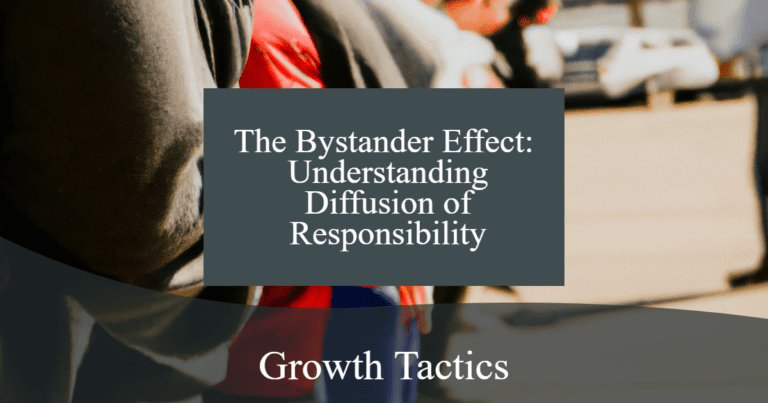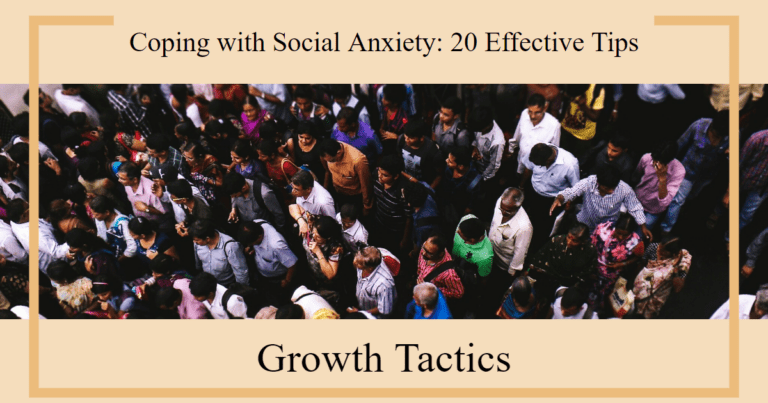Meaningful conversations have the power to transform our lives, both personally and professionally. In a world where we are constantly bombarded with information and distractions, the ability to engage in deep, thought-provoking dialogues is becoming increasingly rare and valuable.
Whether in personal or professional settings, meaningful conversations have the power to inspire, motivate, and catalyze positive change. They provide a platform for exchanging ideas, sharing experiences, and exploring new possibilities. By asking thought-provoking questions during coffee chats and actively listening, we can unlock the potential for personal growth, strengthen relationships, and cultivate a deeper sense of fulfillment in our lives.
Jump To Section
What Are Thought-Provoking Questions?
Thought-provoking questions are inquiries designed to stimulate deep reflection, introspection, and meaningful dialogue. They move beyond surface-level exchanges and encourage individuals to explore their beliefs, values, and experiences, and share their knowledge, and perspectives profoundly.
The purpose of asking thought-provoking questions is multifaceted. Firstly, they foster personal growth by challenging individuals to examine their thought processes, assumptions, and motivations.
Secondly, they facilitate deeper connections and understanding between people by promoting vulnerability, empathy, and active listening. Thirdly, they spark creativity and innovation by encouraging diverse perspectives and unconventional thinking.
Engaging in thought-provoking conversations offers numerous benefits:
- Self-Awareness: By reflecting on these questions, individuals gain greater insight into their own thoughts, feelings, and behaviors, leading to increased self-awareness and personal growth.
- Deeper Connections: Thought-provoking questions create a space for vulnerability and authenticity, allowing people to connect on a deeper level and build stronger relationships.
- Expanded Perspectives: These questions encourage individuals to consider different viewpoints and challenge their assumptions, broadening their perspectives and promoting open-mindedness.
- Enhanced Communication: Asking thought-provoking questions and actively listening to the responses improves communication skills and fosters a more meaningful exchange of ideas.
- Creativity and Innovation: By exploring unconventional ideas and challenging the status quo, thought-provoking questions can spark creativity and innovative thinking, leading to new solutions and breakthroughs.
Whether in personal or professional settings, thought-provoking questions have the power to elevate conversations, deepen understanding, and facilitate personal and collective growth.
Leadership and Career Growth Questions to Ask
What has been your biggest leadership challenge, and how did you overcome it?
This question delves into the real-world experiences and problem-solving abilities of the person. It can reveal their resilience, adaptability, and growth mindset in the face of adversity.
If you could go back and change one decision in your career, what would it be and why?
This thought-provoking question encourages self-reflection and vulnerability. It can provide insights into their decision-making process, values, and lessons learned from past experiences.
What’s the most important trait or skill for effective leadership?
This question allows the person to share their leadership philosophy and what they prioritize in leading others. It can spark a discussion about different leadership styles and the qualities that contribute to success.
How do you stay motivated and inspired in your work?
This question explores the person’s intrinsic motivators and passion for their career. It can reveal their purpose, values, and the factors that drive them to continuously grow and improve.
If you could start your career over, what would you do differently?
This question encourages the person to reflect on their journey and the lessons they’ve learned along the way. It can provide valuable insights into their personal and professional growth, as well as their ability to adapt and evolve.
Personal Development Questions
These thought-provoking questions are designed to encourage self-reflection, self-awareness, and personal growth. By exploring these inquiries, you can gain a deeper understanding of yourself and your aspirations.
“What’s one piece of advice you would give your younger self?”
This question prompts introspection and reflection on the lessons learned throughout one’s life journey. It invites the individual to share the wisdom they’ve acquired, highlighting the growth and maturation that has occurred over time.
“What’s a belief or mindset that has significantly shaped your life?”
Our beliefs and mindsets profoundly influence our thoughts, decisions, and actions. This question delves into the core values and perspectives that have guided an individual’s life, fostering self-awareness and an understanding of the driving forces behind their choices.
“What’s a skill or talent you wish you had developed earlier in life?”
By identifying skills or talents they wish they had cultivated earlier, individuals can gain insight into their unfulfilled desires and untapped potential. This question encourages reflection on personal growth opportunities and may inspire the pursuit of new interests or goals.
“What’s the most significant challenge you’ve overcome, and how did it shape you?”
Overcoming challenges is a transformative experience that often leads to personal growth and resilience. This question allows individuals to share their stories of triumph over adversity, highlighting the lessons learned and the ways in which they have evolved as a result.
“If you could go back and relive one day from your life, which day would it be and why?”
This nostalgic question invites individuals to reflect on cherished memories and significant moments that have left an indelible mark on their lives. It encourages them to appreciate the experiences that have shaped their journey and to savor the precious moments that hold special meaning.
Team Building Questions
Fostering a cohesive and collaborative team is crucial for success in any organization. By asking thoughtful questions during coffee chats, you can gain valuable insights into your team members’ communication styles, work preferences, and perspectives. Here are some thought-provoking questions to help build stronger team dynamics:
- “What’s your preferred way of receiving feedback, and how can I better support you in that?”
- “If you could change one thing about how our team communicates, what would it be?”
- “What’s one thing you appreciate about our team and one area where you think we could improve?”
- “How can we create an environment where everyone feels comfortable sharing their ideas and opinions?”
- “What’s one thing you’ve learned from a team member that has positively impacted your work?”
These questions encourage open dialogue, promote active listening, and demonstrate a genuine interest in your team members’ experiences and perspectives. By understanding each individual’s communication preferences and addressing potential areas for improvement, you can create a more inclusive and collaborative team culture.
Additionally, these questions can help identify potential roadblocks or misalignments within the team, allowing you to address them proactively. Encouraging team members to share their ideas and insights can also lead to innovative solutions and increased engagement.
Remember, building a strong team is an ongoing process that requires consistent effort and open communication. By incorporating thought-provoking questions into your coffee chats, you can foster a network of trust, respect, and continuous improvement within your team.
Purpose and Passion Questions
These questions delve into the heart of what drives and inspires individuals, uncovering the motivations, passions, and sense of purpose that fuel their ambition and zest for life.
What is your biggest passion in life, and how did you discover it?
This question invites people to reflect on the pursuits that ignite their souls and bring them a deep sense of fulfillment. It encourages them to share the journey of self-discovery that led them to unearth their true passions, fostering a deeper understanding of what makes them tick.
If you could dedicate your life to solving one problem in the world, what would it be and why?
Asking about the one problem they would dedicate their life to solving reveals their values, priorities, and the causes closest to their hearts. It offers insight into their vision for a better world and the impact they wish to create.
What legacy do you hope to leave behind?
This question prompts individuals to contemplate their lasting impact and the mark they hope to leave on the world. It invites them to share their aspirations, values, and the positive change they wish to inspire in others, even after they’re gone.
If you had unlimited resources, how would you spend your time and energy?
By removing practical constraints, this question allows people to dream big and share their most ambitious goals and desires. It unveils their true priorities and the pursuits they would wholeheartedly dedicate themselves to if given the opportunity.
What advice would you give to someone searching for their life’s purpose?
This question taps into the wisdom and experiences of those who have embarked on their own journey of self-discovery and professional development. It encourages them to share insights, lessons learned, and practical guidance for others seeking to uncover their unique purpose and live a more fulfilling life.
Tips for Asking Thought-Provoking Questions
Asking thought-provoking questions is an art form that requires practice and finesse. Here are some strategies to help you effectively facilitate meaningful conversations:
Set the Tone: Before diving into the questions, take a moment to set the stage. Explain the purpose of the conversation and emphasize the importance of open and honest dialogue. This creates a safe space for vulnerability and encourages deeper reflection.
Listen Actively: Truly listening is just as important as asking the right questions. Maintain eye contact, nod, and provide affirmative responses to show you’re engaged. Avoid interrupting or planning your next question while the other person is speaking.
Follow Up: When someone shares an interesting perspective or experience, don’t be afraid to ask follow-up questions. This shows genuine interest and encourages them to elaborate further, leading to richer insights.
Embrace Silence: Comfortable silences allow the other person to gather their thoughts and formulate a more thoughtful response. Resist the urge to fill every pause, and give them the space they need.
Be Adaptable: While having a list of questions prepared is helpful, be willing to deviate from the script. Allow the conversation to flow naturally, and follow interesting tangents that arise. This flexibility can lead to unexpected and valuable discoveries.
Show Empathy: Approach the conversation with empathy and an open mind. Avoid judgment or criticism, and create an environment where the other person feels comfortable sharing their authentic thoughts and feelings.
Reflect and Rephrase: Occasionally, summarize or rephrase what the other person has said. This not only shows you’re actively listening but also allows them to clarify or expand on their thoughts.
Remember, the goal of thought-provoking questions is not to find definitive answers but to explore different perspectives, challenge assumptions, and foster personal growth. By mastering these strategies, you can elevate your coffee chats into meaningful and insightful experiences.
The Importance of Active Listening
Active listening is a crucial skill for fostering meaningful conversations during coffee chats or any other interpersonal interaction. It involves fully concentrating on what the other person is saying, without mentally rehearsing a response or allowing distractions to interfere. Active listening demonstrates respect, builds trust, and allows for a deeper understanding of the speaker’s perspective.
When you practice active listening, you engage both your mind and body. Maintain eye contact, nod occasionally, and use affirmative cues like “I see” or “Go on” to encourage the speaker. Refrain from interrupting or formulating rebuttals, and instead, focus on comprehending the speaker’s message, tone, and underlying emotions.
By actively listening, you create an environment where the other person feels heard and valued. This can lead to more open and honest dialogue, as individuals feel safe to express their thoughts and feelings without fear of judgment or dismissal. Active listening also allows you to ask relevant follow-up questions, deepening the conversation and fostering a more profound understanding between both parties.
In a coffee chat setting, active listening can help you uncover valuable insights, perspectives, and experiences that may not have surfaced otherwise. It demonstrates your genuine interest in the other person and can strengthen your professional and personal relationships. Ultimately, active listening is a powerful tool for building trust, empathy, and meaningful connections – the cornerstones of truly impactful conversations.
Building Emotional Intelligence
Emotional intelligence is the ability to recognize, understand, and manage emotions in ourselves and others. It’s a critical skill for effective communication, empathy, and building meaningful connections. By asking thought-provoking questions during coffee chats, we can cultivate emotional intelligence in several ways.
Firstly, these questions encourage self-awareness and introspection. When we ask questions that prompt others to reflect on their emotions, values, and motivations, we create an opportunity for them to develop a deeper understanding of themselves. This self-awareness is a cornerstone of emotional intelligence, as it allows individuals to recognize and manage their own emotions more effectively.
Secondly, thought-provoking questions foster empathy and social awareness. By asking questions that encourage others to share their perspectives, experiences, and feelings, we gain insight into their inner world. This understanding helps us to be more attuned to the emotions of others, which is essential for building strong relationships and effective communication.
Furthermore, these questions can help individuals develop better self-regulation and adaptability. When we engage in conversations that explore personal growth, challenges, and lessons learned, we gain valuable insights into how to navigate difficult situations and manage our emotions effectively. This self-regulation and adaptability are key components of emotional intelligence, enabling us to respond appropriately to various situations and maintain positive relationships.
Finally, thought-provoking questions can inspire motivation and a growth mindset. By exploring topics related to purpose, passion, and personal development, we encourage others to reflect on their goals and aspirations. This intrinsic motivation and desire for growth are essential for emotional intelligence, as they drive us to continuously learn, adapt, and improve our emotional skills.
In summary, asking thought-provoking questions during coffee chats can be a powerful tool for developing emotional intelligence. By fostering self-awareness, empathy, self-regulation, and motivation, these questions create an environment conducive to personal growth and meaningful connections.
Creating a Safe Space for Vulnerability
Asking thought-provoking questions often requires vulnerability from both parties involved. To foster an environment where vulnerability can thrive, it’s essential to create a safe space built on trust and comfort.
First and foremost, establish a judgment-free zone. Make it clear that there are no right or wrong answers, and that the goal is to have an open and honest conversation. Encourage your conversation partner to share their thoughts and feelings without fear of criticism or ridicule.
Secondly, practice active listening. Maintain eye contact, nod, and provide verbal affirmations to show that you are fully present and engaged in the conversation. This not only makes the other person feel heard and understood but also helps to build trust and rapport.
Another key aspect of creating a safe space is respecting boundaries. If your conversation partner seems hesitant or uncomfortable with a particular line of questioning, don’t push. Instead, acknowledge their discomfort and move the conversation in a different direction.
Finally, lead by example. Share your own vulnerabilities and experiences to create a sense of mutual understanding and connection. When you open up and show your authentic self, it can encourage others to do the same, fostering a deeper and more meaningful exchange.
The Role of Curiosity
Curiosity is a powerful force that can unlock new perspectives, foster deeper connections, and drive personal growth. When we approach conversations with a genuine sense of curiosity, we open ourselves up to understanding others’ viewpoints, experiences, and motivations.
Maintaining a curious mindset during coffee chats or meaningful conversations allows us to ask questions that go beyond the surface level. Instead of making assumptions or relying on preconceived notions, curiosity encourages us to explore the depths of someone’s thoughts, beliefs, and aspirations.
By expressing genuine interest and asking follow-up questions, we demonstrate our willingness to learn and understand. This creates an environment where the other person feels heard and valued, which can lead to more authentic and vulnerable discussions.
Furthermore, curiosity helps us challenge our own biases and assumptions. When we approach conversations with an open mind and a desire to learn, we become more receptive to new ideas and perspectives that may differ from our own. This exposure to diverse viewpoints can broaden our horizons, stimulate critical thinking, and foster personal growth.
Ultimately, embracing curiosity in our interactions allows us to build stronger connections, gain deeper insights, and develop a more nuanced understanding of the world around us. It is a powerful tool that can enrich our personal and professional relationships, and help us navigate the complexities of life with greater empathy and wisdom.
Conclusion
Thought-provoking questions have the power to transform ordinary conversations into catalysts for personal growth, deeper connections, and invaluable insights. By embracing curiosity, vulnerability, and active listening, you can unlock the true potential of meaningful dialogues.
Asking questions that challenge perspectives, probe motivations, and uncover hidden wisdom not only fosters understanding but also cultivates empathy and emotional intelligence. Whether you’re a leader seeking to inspire your team, an individual striving for self-improvement, or someone simply seeking more fulfilling relationships, the ability to craft and ask thought-provoking questions is an invaluable skill.
As you embark on your next coffee chat, remember the 25 questions we’ve explored. Allow them to serve as a starting point, a guide to navigating the uncharted territories of human experience and personal growth. Embrace the discomfort of vulnerability, for it is in those moments that true connections are forged and profound revelations emerge.
Challenge yourself to ask at least one thought-provoking question during your next coffee chat. Observe how it shifts the dynamic, opens new doors, and deepens the level of understanding between you and your conversation partner. Reflect on the insights gained and the connections strengthened.
Meaningful conversations have the power to transform lives, inspire change, and foster a greater sense of purpose. Embrace the art of asking thought-provoking questions, and witness the profound impact it can have on your personal and professional journey.








